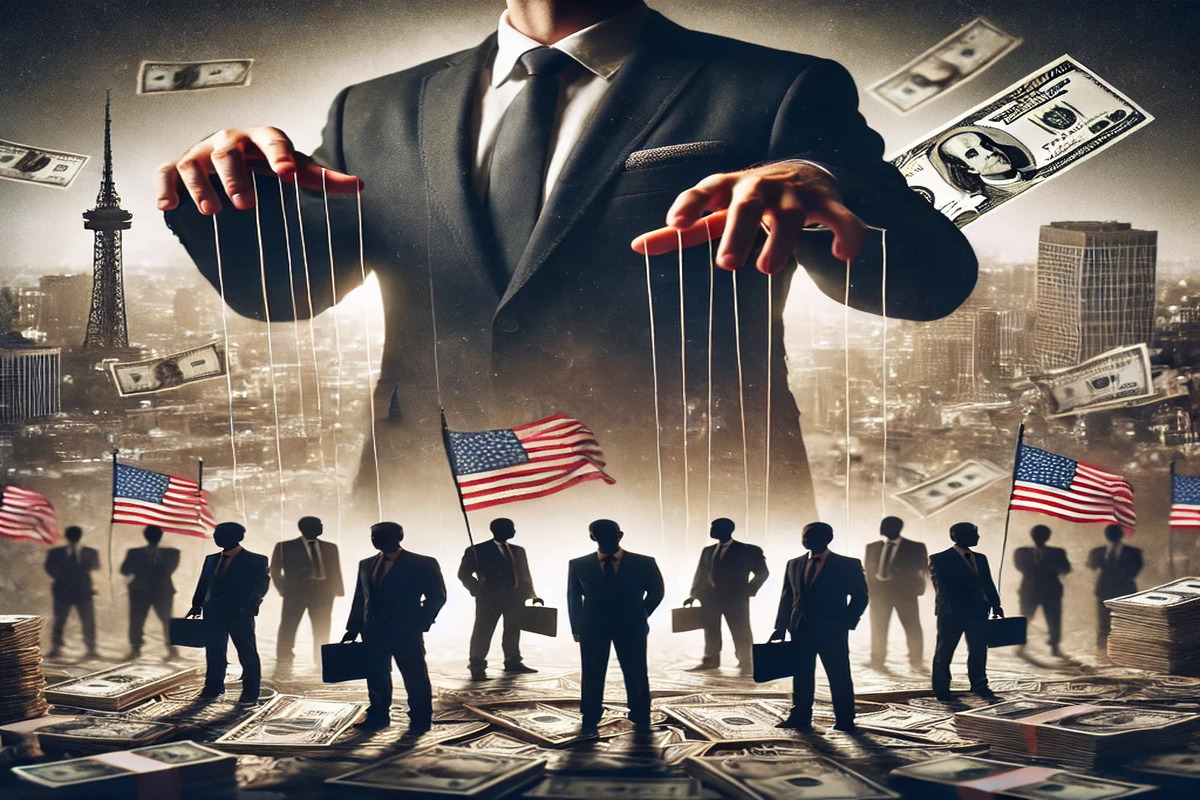In the intricate dance of global politics, business moguls wield significant influence through strategic funding. Read More
In the United States, business moguls have long been instrumental in shaping political outcomes through Super Political Action Committees (Super PACs). These organizations, which emerged following the Supreme Court’s Citizens United decision in 2010, allow for unlimited contributions to political campaigns, giving wealthy individuals and corporations substantial influence over elections and policy. One prominent example is Sheldon Adelson, the late casino magnate, who was a major donor to Republican causes. Adelson’s contributions through Super PACs and other political donations played a crucial role in supporting candidates and influencing policy debates on issues such as tax reform and foreign policy. Similarly, George Soros, a prominent financier, has used his wealth to support progressive causes and Democratic candidates, impacting issues ranging from criminal justice reform to healthcare. In Europe, business moguls exert their influence through a combination of lobbying and strategic funding. The European Union (EU) is a prime example of how business interests shape political decisions at a continental level. One notable figure is Sir James Dyson, the British inventor and entrepreneur, who has been active in lobbying for favorable policies related to technology and innovation. Dyson’s contributions to political campaigns and think tanks have helped shape policies on issues such as climate change and intellectual property rights. Another example is the involvement of large multinational corporations like Nestlé and Siemens, which use their resources to influence EU regulations on trade, environmental standards, and industry practices. In Asia, the influence of business moguls is increasingly evident in countries like China, where economic power is closely tied to political influence. Business leaders in China often leverage their economic success to gain favor with the government, which in turn can shape political and economic policies. A prominent example is Jack Ma, the founder of Alibaba. Ma’s influence extends beyond the business realm into political spheres, where his company’s growth has been closely aligned with Chinese government policies. Alibaba’s role in advancing China’s digital economy and its contributions to government-backed initiatives highlight how business leaders can shape policy through economic success and strategic partnerships. Similarly, in India, industrialists like Mukesh Ambani and Gautam Adani wield significant political influence through their vast business empires. Their investments in infrastructure, technology, and energy often align with government priorities, reinforcing their political connections and shaping national policies. On a global scale, some business moguls operate across borders to exert influence. The Koch brothers, Charles and David, have used their wealth to support a range of political causes and candidates, both in the U.S. and internationally. Their funding has extended to think tanks, advocacy groups, and political campaigns, impacting policy on issues such as environmental regulation and taxation. The Koch brothers’ influence is a testament to how business leaders can leverage their resources not only within their home countries but also on the global stage, shaping international policies and political narratives. The power of business moguls to shape politics through strategic funding is undeniable. From influencing elections and policy in the U.S. to shaping regulations in Europe, China, and beyond, their financial contributions and lobbying efforts play a critical role in the political landscape. As business leaders continue to wield significant influeCnce, it is essential for the public and policymakers to remain vigilant and ensure that political decisions are made in the best interest of society as a whole. Understanding the intersection of business and politics helps us recognize the broader implications of financial influence on governance. As we navigate this complex relationship, it is crucial to advocate for transparency and accountability, ensuring that the voices of ordinary citizens are not overshadowed by the interests of the wealthy few. By fostering an informed and engaged citizenry, we can strive for a political system that reflects the diverse needs and values of all members of society. The U.S.: Shaping Policy Through Super PACs
Europe: The Influence of Big Business on the EU
Asia: The Rise of Corporate Influence in China
Global Influence: The Case of the Koch Brothers
Final Words: Navigating the Intersection of Business and Politics

The Power of Influence: How Business Moguls Shape Politics Through Strategic Funding
In the intricate dance of global politics, business moguls wield significant influence through strategic funding. Read More
